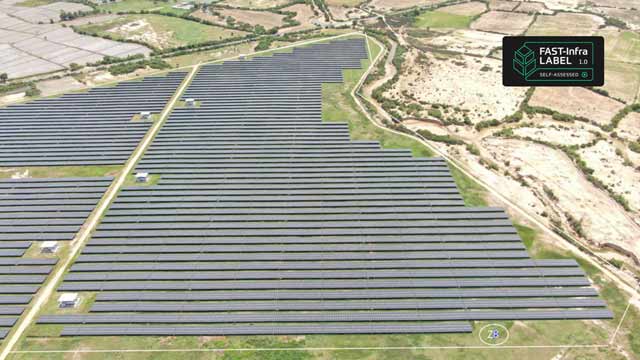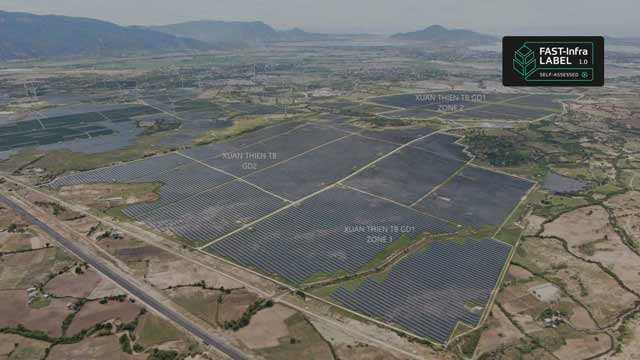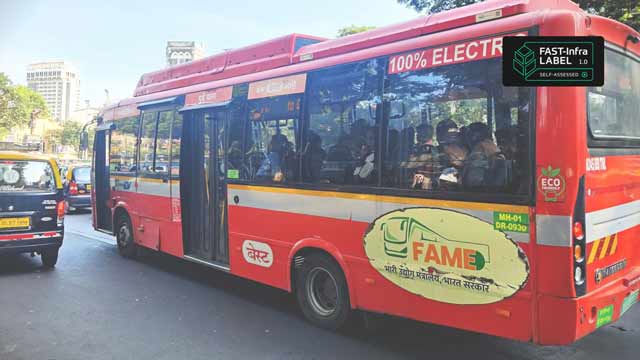
Financing Sustainable Infrastructure: International Standards and Chinese Practices
What’s a Rich Text element?
The rich text element allows you to create and format headings, paragraphs, blockquotes, images, and video all in one place instead of having to add and format them individually. Just double-click and easily create content.
H1
H2
H3
H4
H5
H6


Static and dynamic content editing
A rich text element can be used with static or dynamic content. For static content, just drop it into any page and begin editing. For dynamic content,

add a rich text field to any collection and then connect a rich text element to that field in the settings panel. Vsadsadsdasdasdasdasdoila!
- A rich text element can be used with static or dynamic content. For static content, just drop it into any page and begin editing. For dynamic content, add a rich text field to any collection and then connect a rich text element to that field in the settings panel. Voila!
- t to that field
- t to that field
-
How to customize formatting for each rich text
How to customize formatting for each rich text
How to customize formatting for each rich text
Headings, paragraphs, blockquotes, figures, images, and figure captions can all be styled after a class is added to the rich text element using the "When inside of" nested selector system.
Event highlights from Shanghai Climate Week
As the global call for sustainable infrastructure intensifies, aligning international standards with national leadership becomes ever more crucial. The “Financing Sustainable Infrastructure: International Standards and Chinese Practices” event emerged as a key platform for this dialogue, during Shanghai Climate Week 2025.
Hosted by the FAST-Infra Label, J.P.Morgan, and the Green Finance 60 Forum (GF60), and organised by Global Infrastructure Basel Foundation (GIB), Shanghai Jinsinan Financial Research Institute, and New Energy Nexus China, the event convened over 100 global experts to chart the path for sustainable, resilient infrastructure in China and beyond.

Opening Addresses: A Call for Global Cooperation
The forum opened on April 24—with a call for cooperation across sectors and borders.
“China's practices in this area are exemplary and provide a Chinese solution for global sustainable development. J.P.Morgan is committed to leveraging its global experience to advance green transformation.” said Tim Huang, Managing Director of J.P.Morgan Greater China and FAST-Infra Label Steering Committee Member.
Rong Zou, Co-Chair of the Shanghai Climate Week Executive Committee, noted that with over 70 activities and representatives from more than 30 countries, Shanghai Climate Week exemplifies China’s contribution to global climate governance.
Istvan Kocsis, Deputy Consul General of Switzerland in Shanghai, underscored GIB’s pivotal role as Secretariat of FAST-Infra Label: “GIB provides a platform for market participants to invest in sustainable development with confidence, clarity, and responsibility—laying the foundation for public-private collaboration and anchoring sustainable infrastructure at the heart of global climate and development goals.”
A highlight of the day was the strategic cooperation signing between GIB and UNITAR’s Prosperity Alliance Shanghai Global Climate Academy. Witnessed by leaders from J.P.Morgan, Swiss and Chinese government bodies, this MoU will:
- Mainstream FAST-Infra Label in China, fostering alignment with international best practices.
- Create a “Climate Community” resilience standard, integrating social, natural, human, and physical capital into a unified innovation ecosystem.
- Inject Chinese green technology solutions into global climate governance.
As Changhua Wu, Chair of the Asia-Pacific Water Forum, explained, “This partnership mobilizes government, corporate, and private resources to accelerate green technology adoption and propel us toward carbon neutrality.”
Louis Downing, CEO of GIB, highlighted that while the global demand for infrastructure reached US$18 trillion, the lack of transparency and consistent standards remains a major hurdle for private capital.
The FAST-Infra Label responds to this challenge by labelling projects across Environmental, Social, Governance, and Resilience dimensions—helping reduce greenwashing risks and strengthening investor confidence in sustainable infrastructure.
“The FAST-Infra Label was created by more than 60 organisations from the infrastructure market, including: HSBC, Macquarie, Meridiam, CPI, IFC, GIF and the Swiss government - to provide a standardized and transparent approach to labelling infrastructure projects worldwide.”
Ajay Bhushan Pandey, Vice President of the Asian Infrastructure Investment Bank (AIIB), shared the Bank’s growing reach—313 projects across 38 countries—and its strategic focus on four key areas: green infrastructure, cross-border connectivity, technological innovation, and private capital mobilization.
“To build resilient, low-carbon infrastructure systems, we must scale knowledge-sharing platforms and integrate successful global practices and international standards.”
Echoing this, Jianyu Zhang, Chief Development Officer of the Belt and Road Initiative International Green Development Coalition (BRIGC), emphasized that greater standard alignment and early-stage project preparation are key to enhancing project bankability and unlocking private investment at scale.
Jorge Arbache, Professor at the University of Brasilia and former Deputy Minister of Planning in Brazil, highlighted the challenges developing countries face in scaling sustainable infrastructure—particularly fiscal and governance constraints. He called for cost-effective technologies, flexible business models, and locally tailored investment strategies.
Insights from panels: Solutions at the Intersection of Climate, Capital, and Innovation
The event featured three high-impact panel discussions that tackled the pressing question:
How can infrastructure in China be financed, built, and verified to be future-ready, climate-resilient, and aligned with global sustainability standards?
Building Infrastructure that Withstands Climate Risks

Panelists discussed:
- The use of climate risk modeling and insurance mechanisms to support infrastructure planning.
- The role of industry associations in setting climate-resilient construction standards.
- Importance of public-private partnerships in building adaptive capacity.
Unlocking Capital for Sustainable Infrastructure

This panel focused on unlocking private finance for sustainable infrastructure through standardization, transparency, and blended financing models.
Panelists explored:
- How initiatives like FAST-Infra Label can de-risk and label sustainable infrastructure projects.
- The role of development finance institutions and MDBs in crowding in private capital.
- Creating investable pipelines through trust, data, and ESG alignment.
Scaling Innovation Through Integrated Ecosystems

This discussion spotlighted how technology and cross-sector partnerships can accelerate sustainable infrastructure.
Panelists addressed:
- The application of real-time data and digital tools to strengthen sustainability outcomes.
- Using nature-based solutions for urban and peri-urban resilience.
- Aligning supply chains and infrastructure standards to mainstream sustainability.
Special Feature: China's First FAST-Infra Labelled Project
Marking a significant milestone, the event saw the launch of China’s first FAST-Infra Label Self-Assessed project—the Zhejiang Anji Electric Heavy Truck Project by Newlink.
Zhai Yubo, General Manager of Newlink’s Carbon Neutrality Business Unit, explained the project:
“We’ve integrated photovoltaic power, storage, and charging to support heavy-duty truck electrification—aiming to cut CO₂ emissions by 420,000 tons annually.”
Louis Downing, CEO of Global Infrastructure Basel Foundation (GIB) officially awarded the Label, marking a breakthrough in China’s alignment with global sustainable infrastructure standards.
Closing Remarks : Shared Frameworks for a Shared Future
Closing the event, Changhua Wu emphasized the importance of unifying global and local approaches.
“Frameworks like the FAST-Infra Label don’t just improve project bankability —they elevate sustainable value.”
She urged continued collaboration across borders:
“China’s role in digital infrastructure and green supply chains is essential. Now is the time to scale innovation and cooperation to build the infrastructure of tomorrow.”
The FAST-Infra Label continues to evolve as a global meta-standard, supporting stakeholders from emerging markets to international investors in scaling up green infrastructure with clarity, confidence, and credibility.
Start your journey by completing the FAST-Infra Label self-assessment and align your infrastructure project with internationally recognized sustainability criteria.

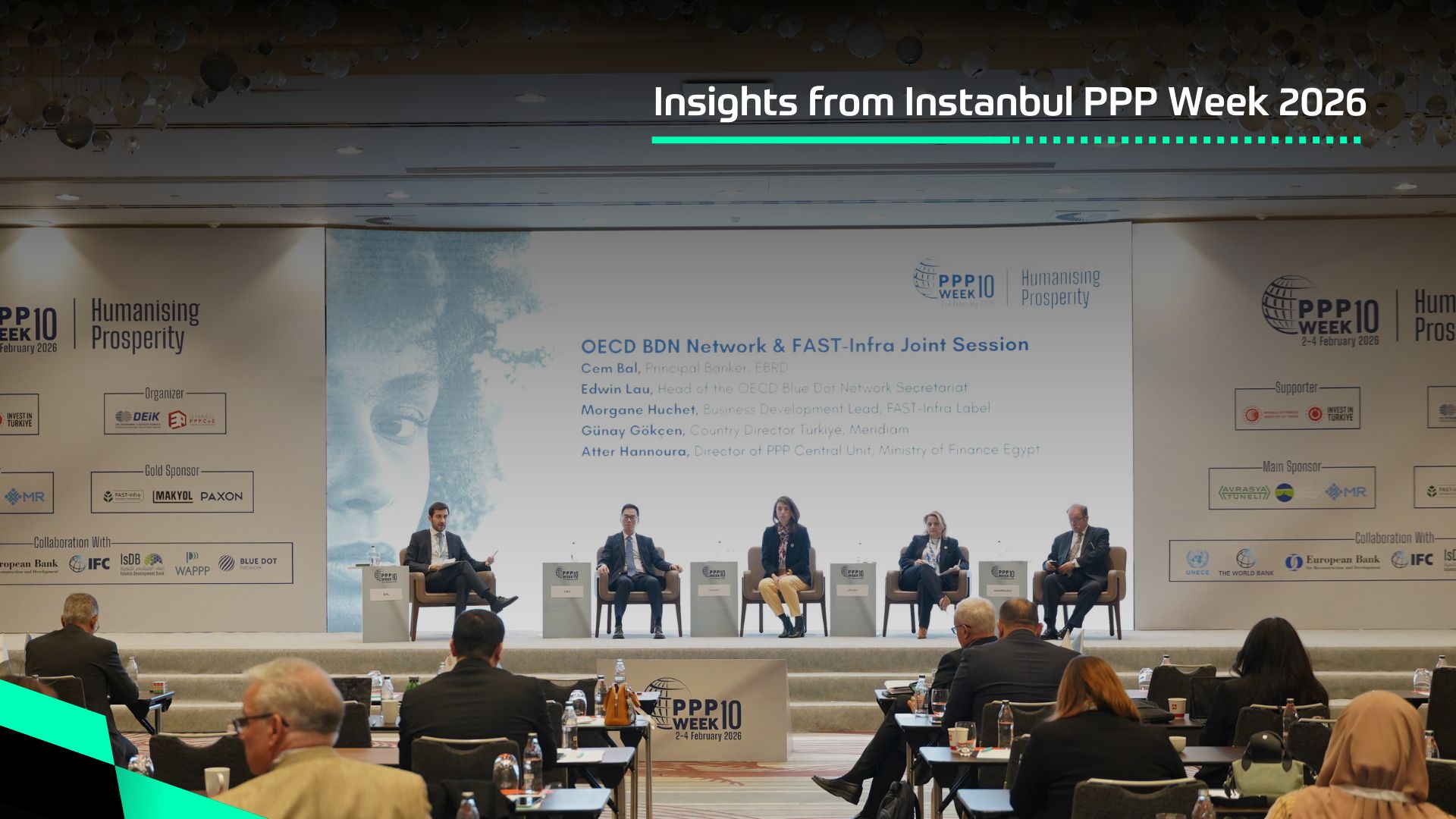
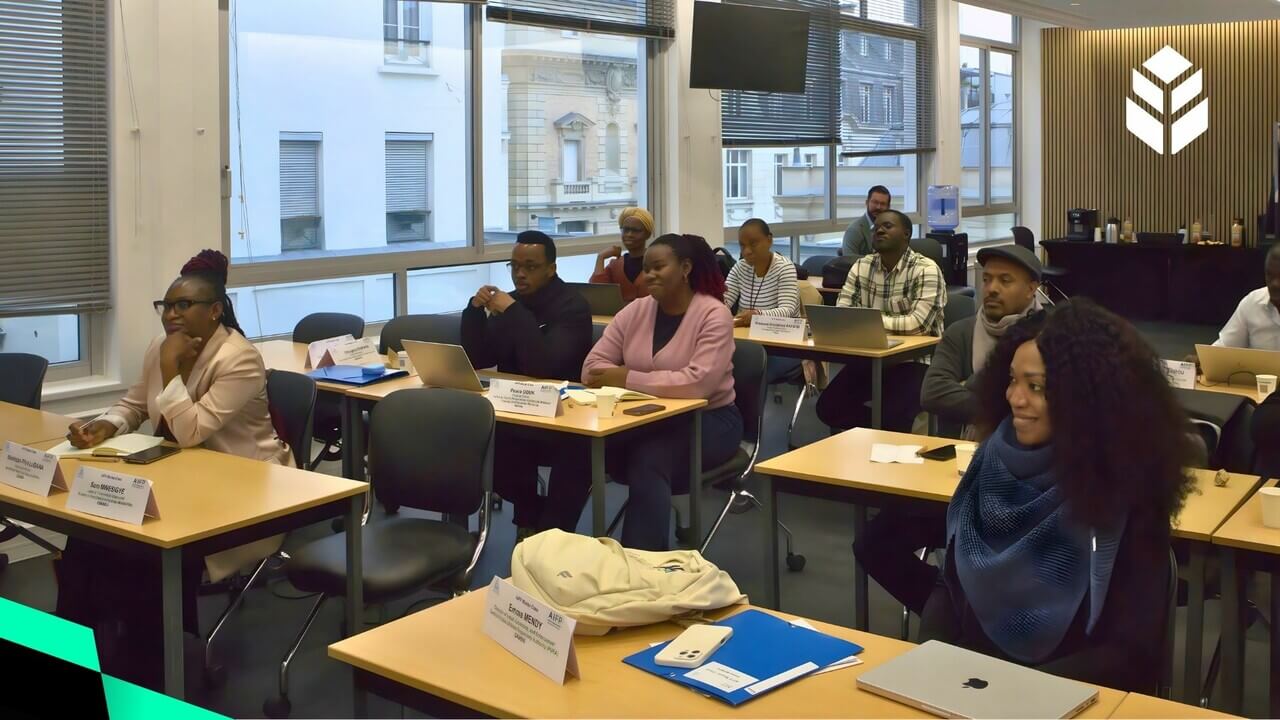

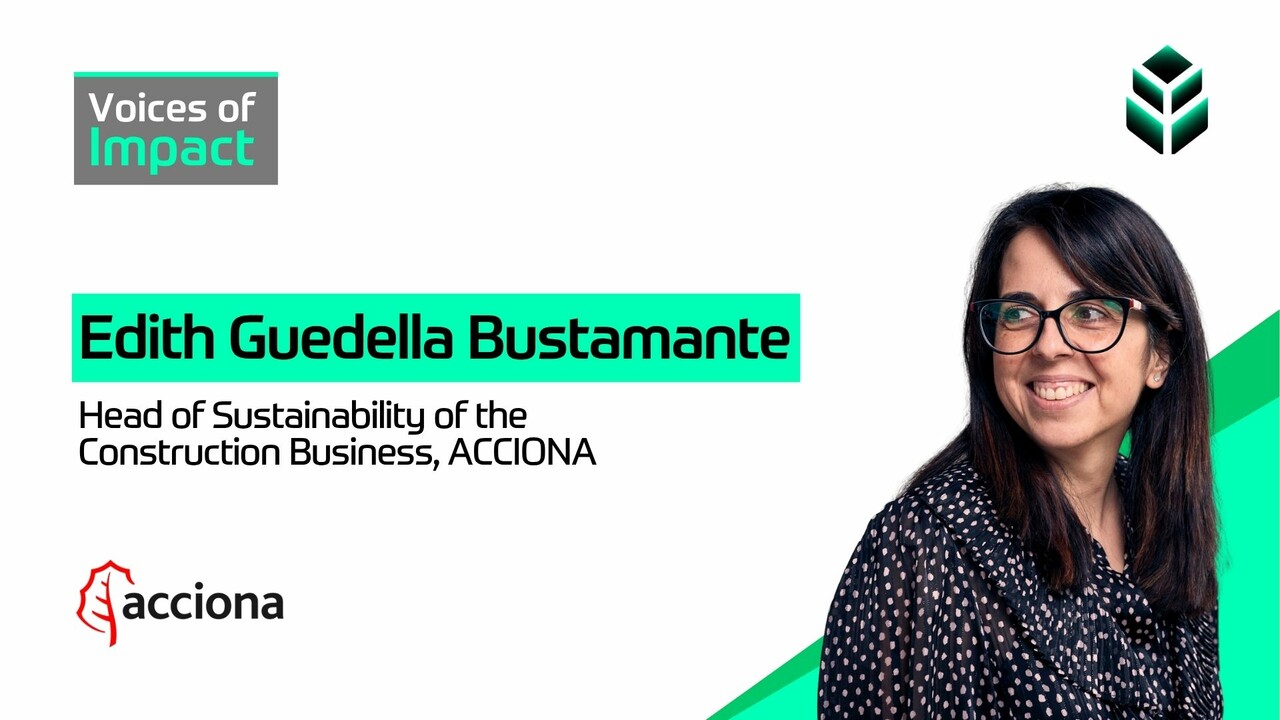



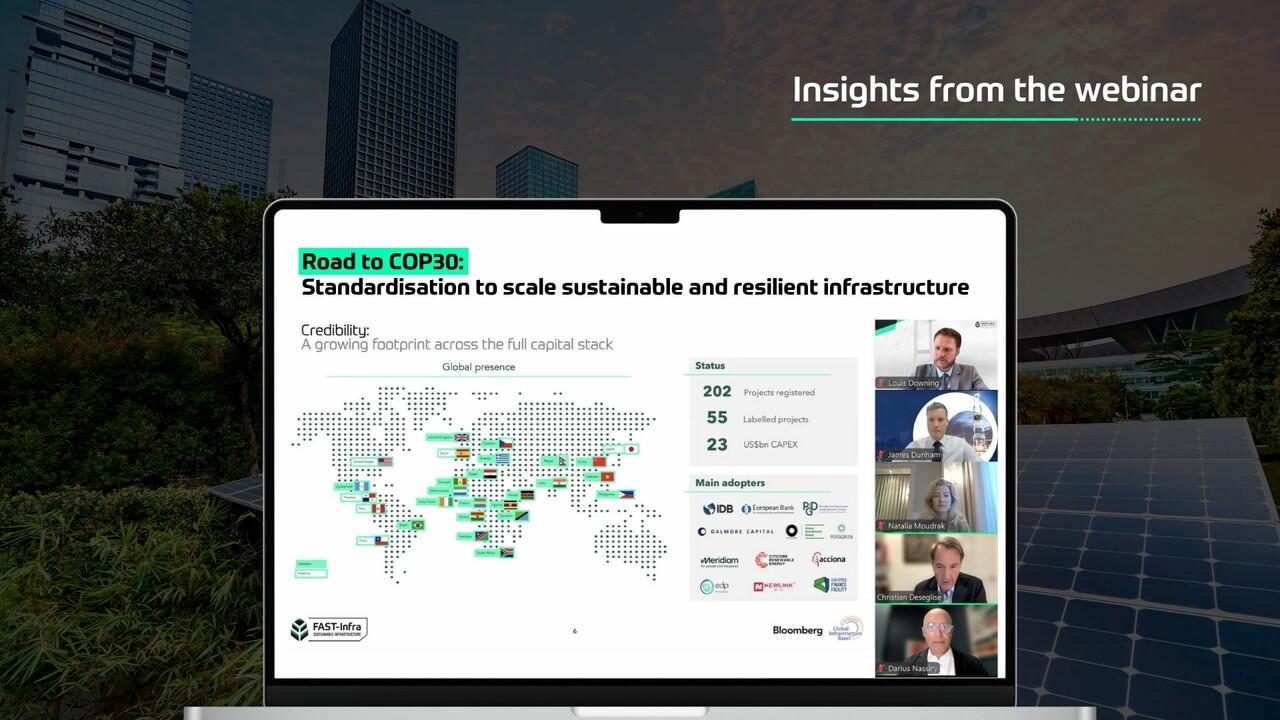


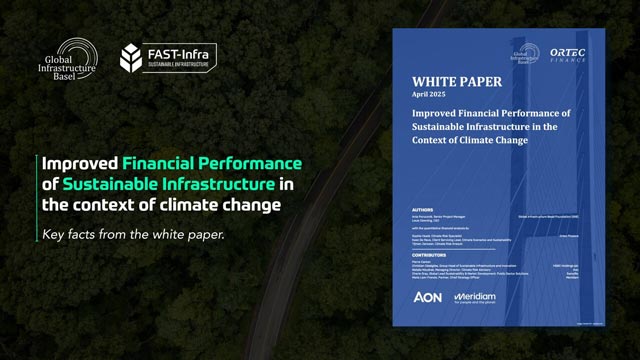


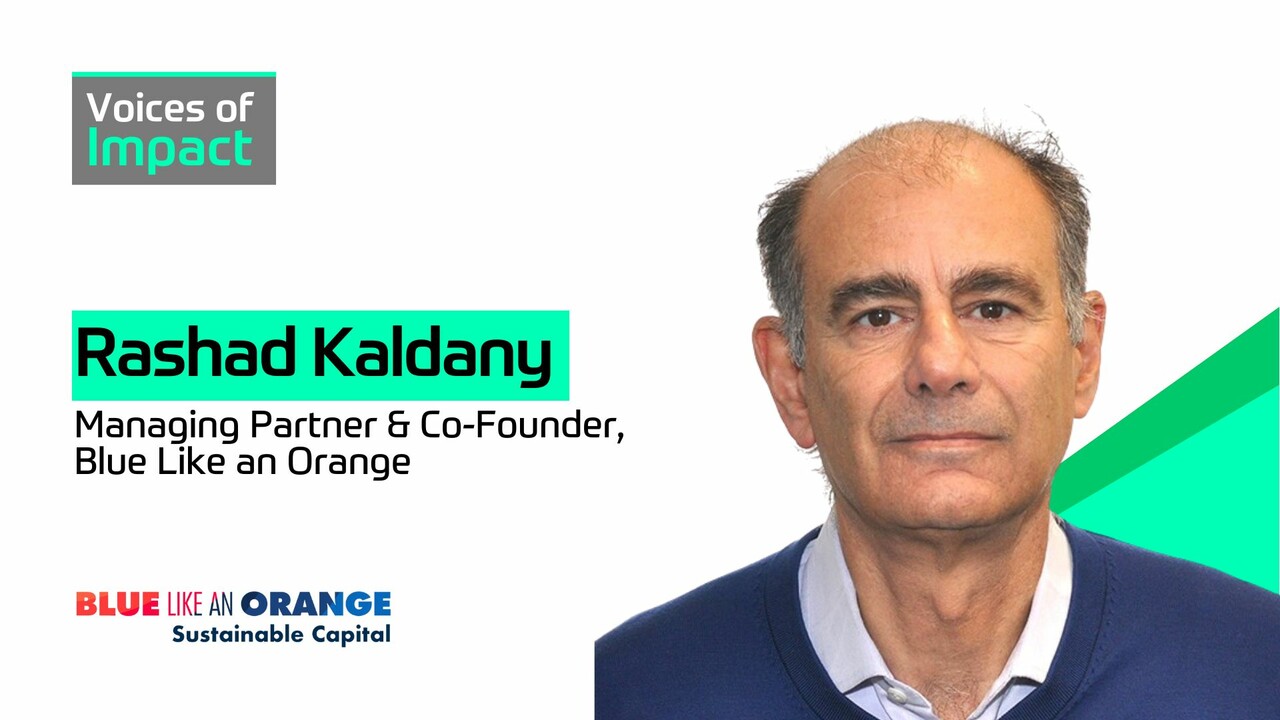
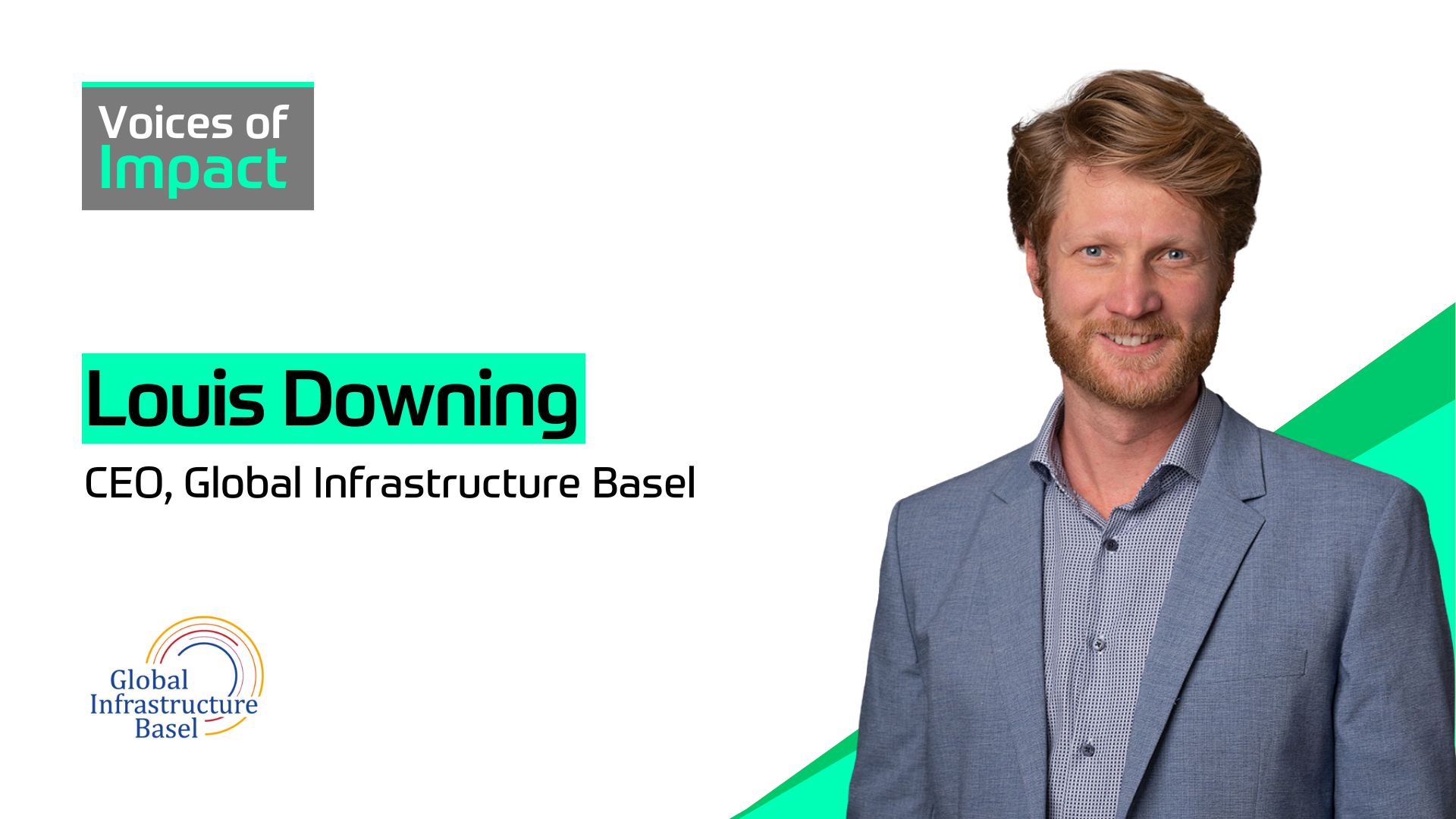
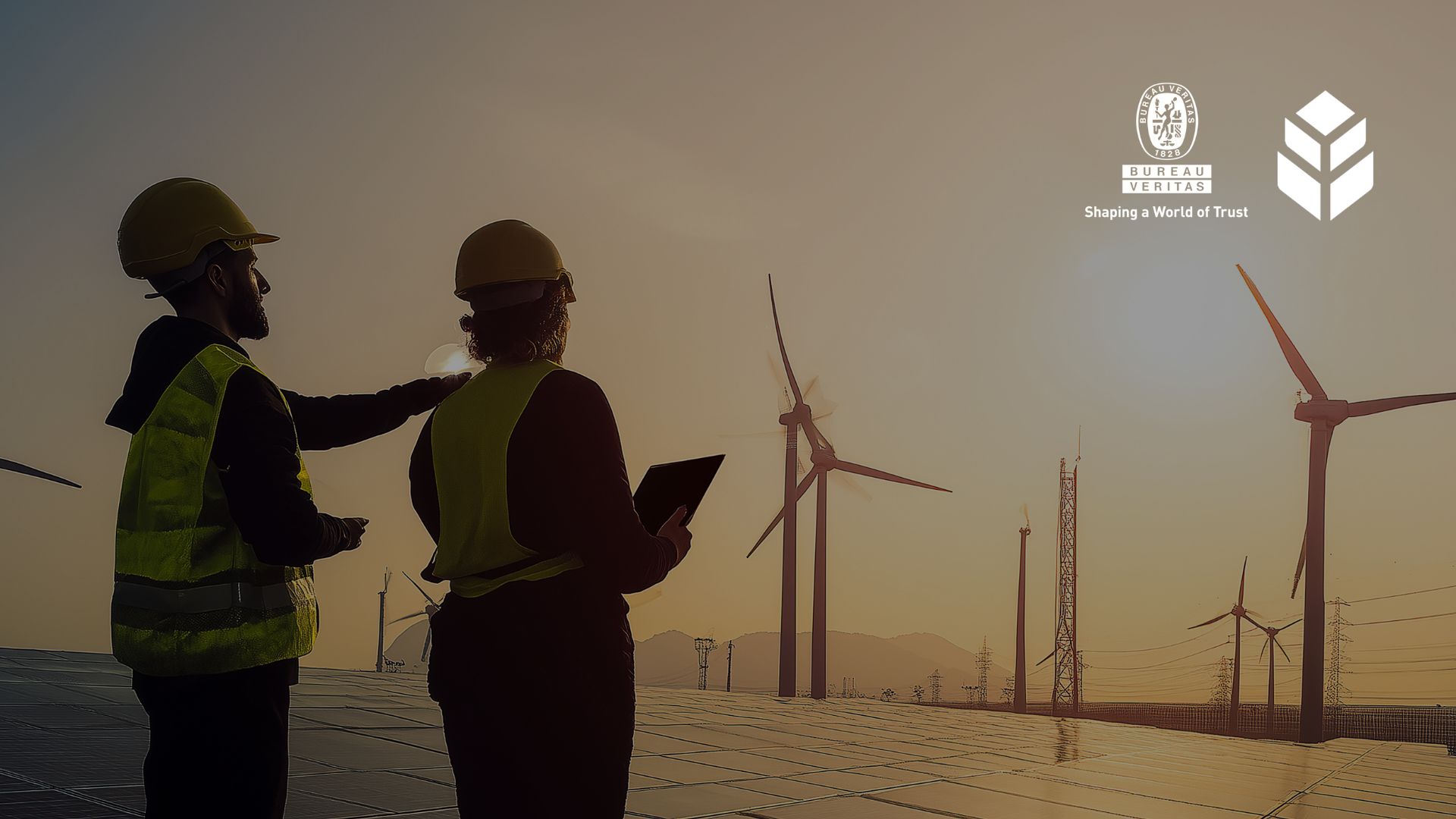
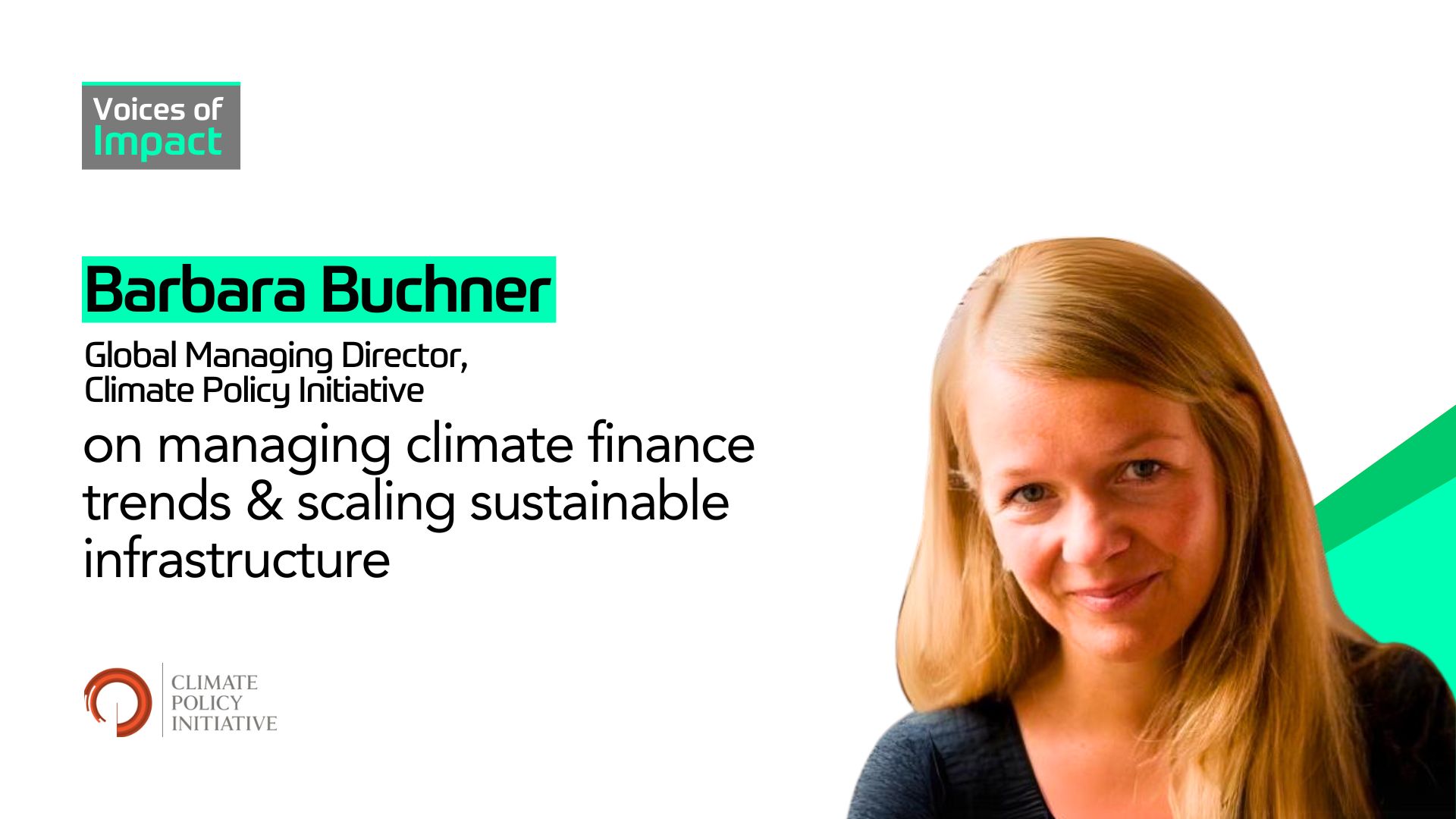
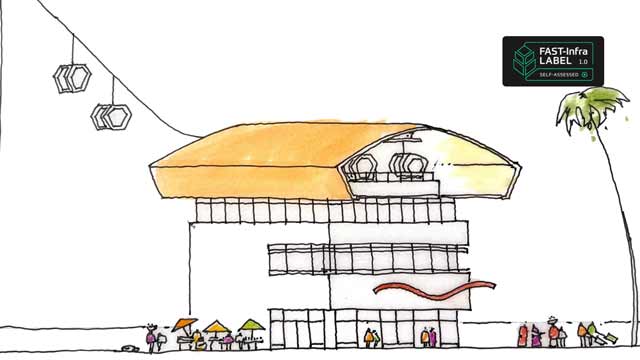






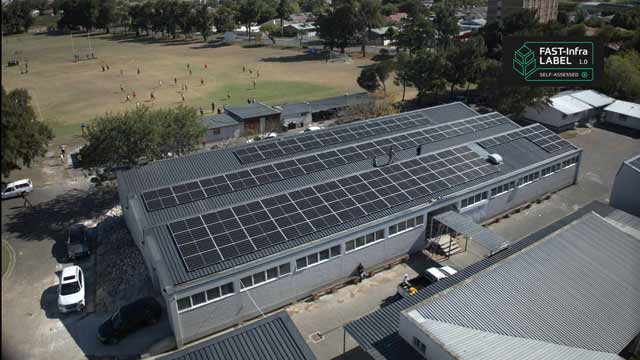

.jpg)

.jpg)


.jpg)
.jpg)
.jpg)
.jpg)
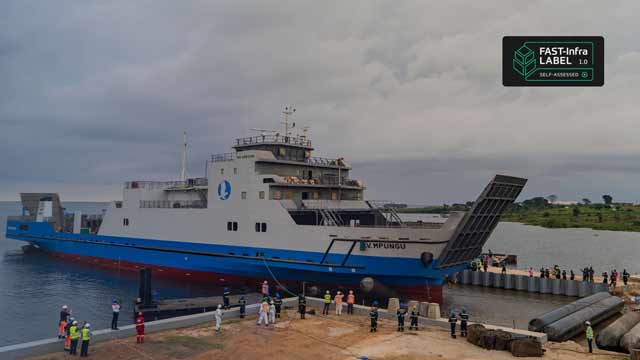
.jpg)




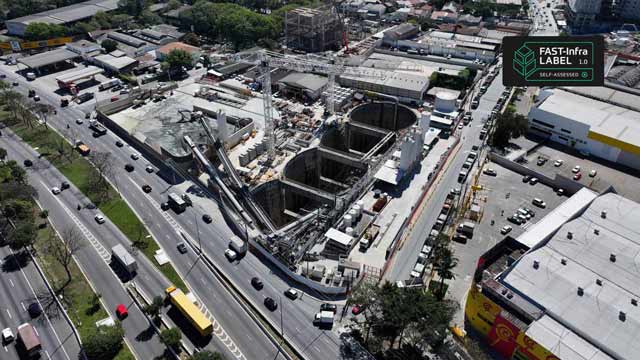




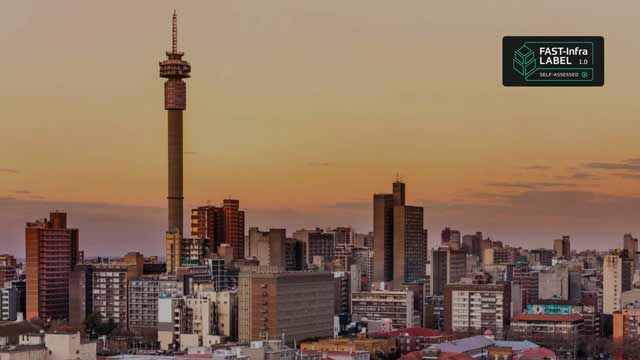








.webp)
.webp)


